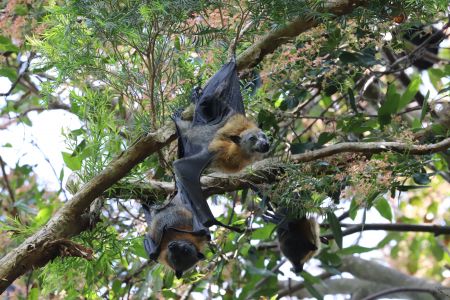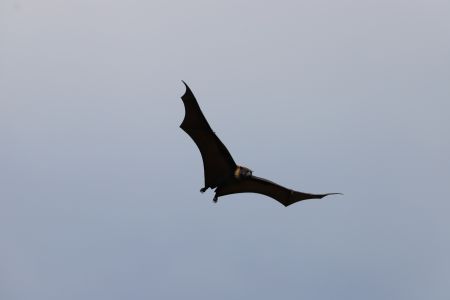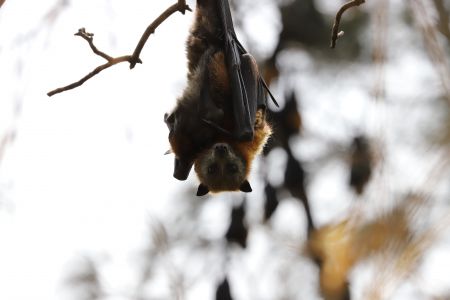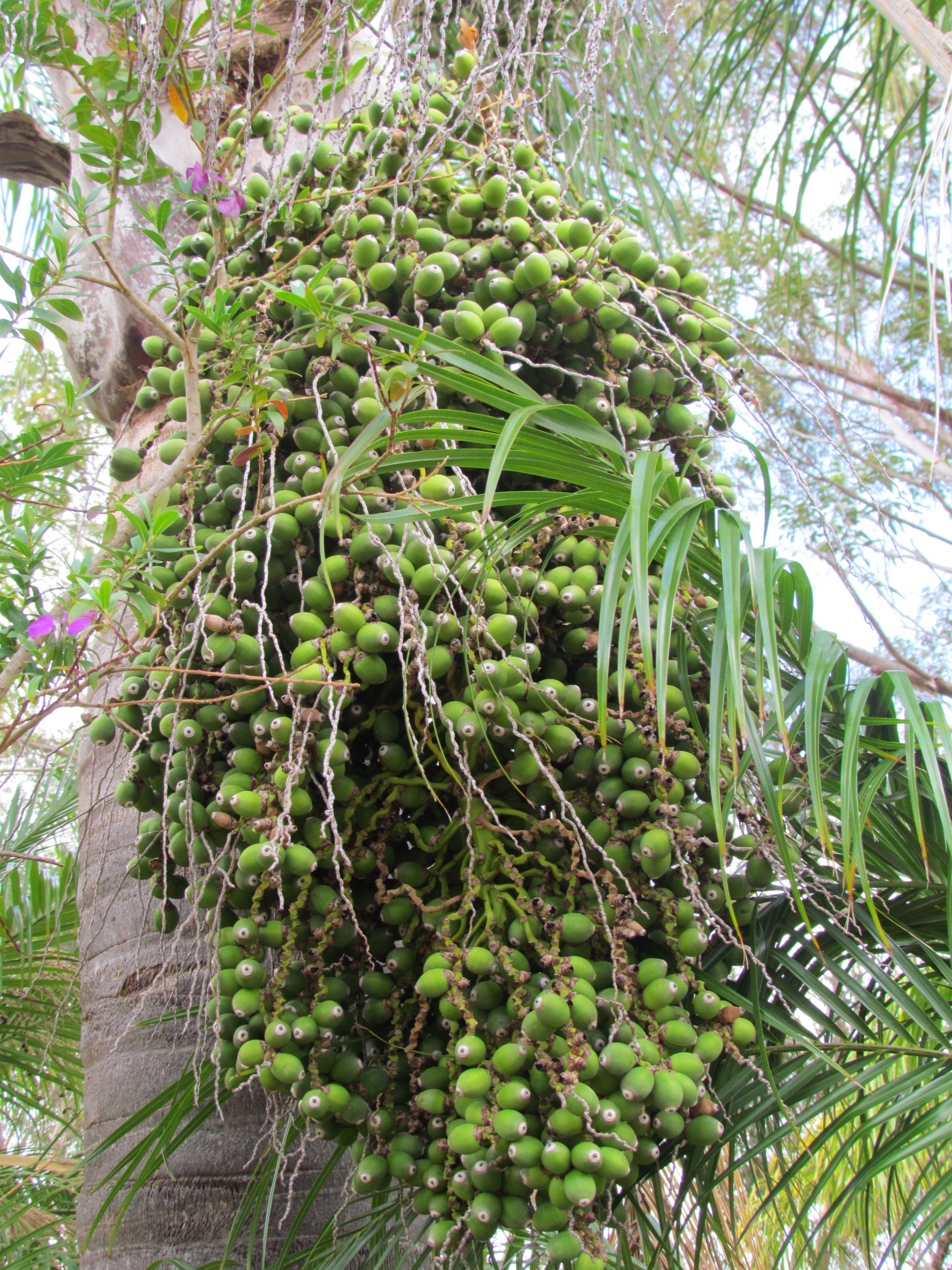


Flying-fox camps vary in size according to the season
Camps can be noisy and smelly, especially at their peak in autumn when we tend to see higher numbers flocking to Sydney to breed, however, numbers usually decrease again naturally over Winter as the flying-foxes migrate elsewhere.
While we understand that this can cause inconvenience to those living nearby, Grey-headed flying-foxes are a protected species, so management options are limited. It is an offence under the Biodiversity Conservation Act 2016 to disturb Grey-headed flying-foxes or their habitats.
Check the tips below to reduce the impact during peak season.
If flying-foxes visit your property to feed at night, do not panic. They will only visit while the tree is flowering or contains fruit. Flying-foxes will move on once the food source is removed or depleted. Please check the tips below to help reduce impacts to your property:
- Hang shiny, moving objects around problem area - CDs, strips of aluminium foil or foil pie-dishes are ideal
- Bring your washing inside overnight or hang washing undercover
- Cover your car and pool at night
- Use a scarecrow or hang a hawk or owl-shaped decoy in your yard
- Remove palm fruit regularly and cover fruit trees with wildlife-friendly netting
- Remove Cocos palms from your property.
- Get advice on the most suitable native species to plant on your property through our Greenweb Program.
Are Flying-foxes a health risk?
The risk of contracting a disease is low. Fewer than 1% carry the Australian Bat Lyssavirus (ABLV).
NSW Health advises that there is no risk to the public from working, playing, or residing near a flying-fox camp, or from contact with their droppings or urine.
Flying-foxes are not usually aggressive towards humans or other animals but may scratch or bite if frightened or injured. The only risk to members of the public is from direct contact with an infected animal, via a bite or scratch.
Council has installed educational signage within the Camellia Gardens, Kareela Creek Reserve, and nearby sports fields to inform visitors of these risks, and how best to avoid them.
Learn more about this from Little Aussie Battlers of our Great Australian Bush.

Eligible residents who live adjacent to a flying-fox camp may apply for a subsidy to remove Cocos Palms.
If you find an injured bat or flying-fox, don’t touch it. Contact WIRES (1300 094 737) and they will assign a trained and vaccinated volunteer to help.
Useful links
- Cocos Palms - Learn about this plant from Gardening Australia.
- Greenweb Grant - Eligible property owners can apply to restore or improve bushland on private properties.
- Wildlife-Friendly Fencing - Learn how to design wildlife-friendly fences.
- Why are flying foxes protected? - Learn why the Grey-headed flying-fox is protected by law.
- People and wildlife policy - Framework to support managing interactions between people and wildlife in NSW.